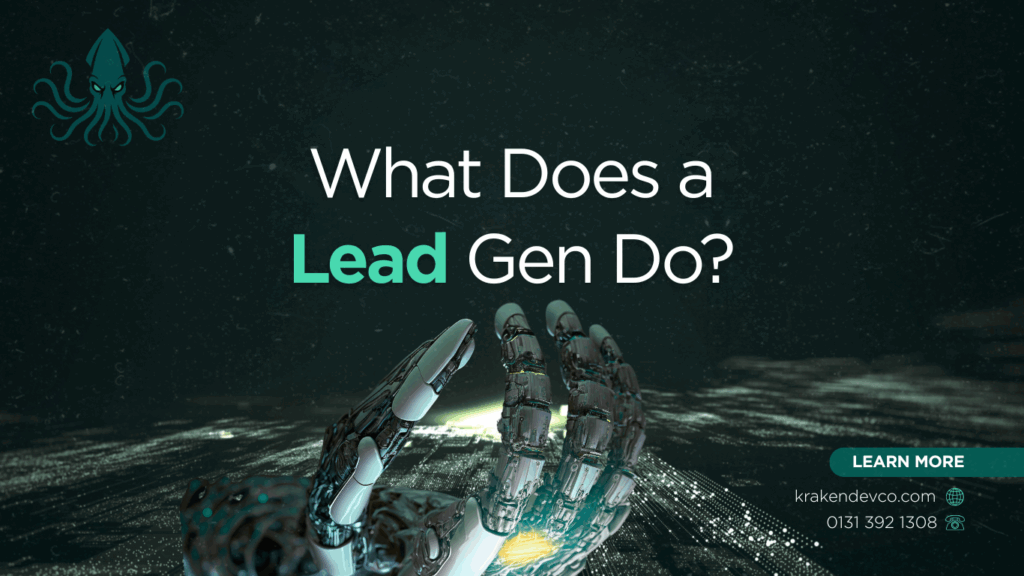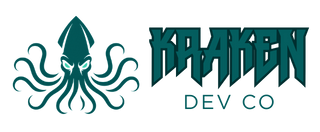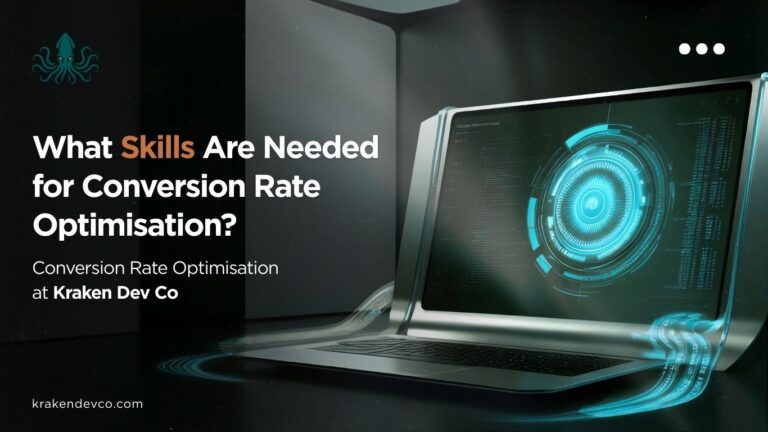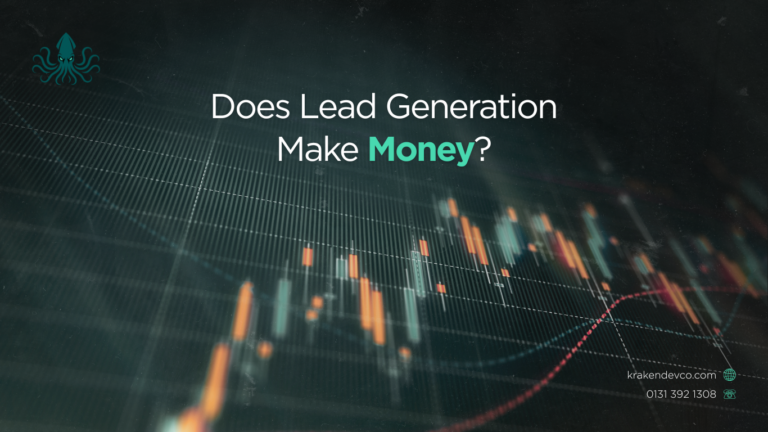
Is your business growing faster than your sales team can keep up?
You’re not alone. As markets shift, competition intensifies, and buyer journeys grow more complex, the need for skilled lead generation has never been more clear. Enter the lead generation specialist , a behind-the-scenes role that’s quietly reshaping how businesses find and qualify potential customers.
At Kraken Dev Co, where we help businesses scale with clarity and confidence, we’ve seen how valuable the right lead gen strategy can be. But what exactly does a lead generation specialist do? And why are they such a key asset in 2025’s sales landscape? Let’s walk through it — from daily tasks to future-facing techniques — and uncover how this role fits into a modern growth strategy.
What Is a Lead Generation Specialist?
A lead generation specialist is someone whose job is to find, attract, and evaluate potential buyers. They don’t usually make the final sale, but they play a vital part in ensuring that only the most relevant prospects get passed on to the sales team.
Think of them as digital scouts. They’re trained to spot the signals that indicate a business is ready to talk, has a real need, or fits the ideal customer profile. In B2B organisations especially, lead gen specialists act as the bridge between initial interest and serious engagement.
What Do Lead Gen Specialists Actually Do?
1. Identify Real Opportunities
Before anything else, specialists sort through vast amounts of data from email sign-ups to webinar attendees, and decide who’s worth following up with. They look at behaviour, engagement, company type, and digital footprints to filter out the noise.
2. Reach Out and Spark Interest
Once they’ve narrowed down promising leads, the next step is outreach. This can include personalised emails, direct messages on LinkedIn, or warm calls. The goal isn’t to hard sell, but to start a conversation and gauge interest.
3. Qualify Leads for Sales
Not all leads are equal. Some are just curious; others are ready to move forward. Using frameworks like BANT (Budget, Authority, Need, Timing) or CHAMP (Challenges, Authority, Money, Prioritisation), specialists assess each lead’s readiness and fit — and pass on the best ones to the sales team.
4. Collaborate With Sales Teams
Lead gen doesn’t work in a vacuum. Specialists must stay in close communication with sales teams to share insights, feedback on lead quality, and adjust strategies when needed. When done right, this coordination improves close rates and reduces wasted effort.
What Skills Do Lead Gen Specialists Need in 2025?
Sales and marketing have become more technical — but also more human. Lead gen specialists need a combination of both.
- Strong Communication
They need to write clearly, speak persuasively, and respond thoughtfully — whether dealing with prospects or colleagues. - CRM Mastery
CRM tools like HubSpot, Salesforce, and ActiveCampaign aren’t just databases. They’re central to tracking lead behaviour, managing outreach, and syncing with other teams. - Data Fluency
It’s not enough to collect contacts. Lead gen specialists need to interpret data, spot trends, and optimise campaigns based on performance. - Understanding of the Sales Funnel
From awareness to decision, specialists must know where leads stand and what actions to take next — without pushing too hard, too early.
How Lead Gen Works in 2025
Lead generation today is far from guesswork. It’s a deliberate process built on traffic generation, interest capture, qualification, and nurturing.
Traffic Comes First
Without traffic, there are no leads. Modern specialists focus on attracting attention through:
- SEO and search ads (SEM)
- Content marketing
- LinkedIn and social engagement
- Webinars and digital events
Capturing Interest
Once someone lands on your website or profile, capturing their information is the next step:
- Optimised landing pages
- Downloadable toolkits or lead magnets
- Chatbots and embedded forms
Qualification and Scoring
Every lead is scored based on engagement and fit. The best prospects—those with interest, budget, and a defined need—are prioritised.
Nurturing Leads Over Time
Most B2B leads aren’t ready to buy right away. Lead gen specialists keep them warm with:
- Email drip campaigns
- Tailored content based on industry or job title
- Webinars and Q&A sessions
- Meaningful conversations on social platforms
Lead Types You Should Know
Not all leads are the same. Here’s how they’re often categorised:
- MQL (Marketing Qualified Lead): They’ve engaged with your marketing but aren’t sales-ready.
- SQL (Sales Qualified Lead): They’ve shown intent and are ready to talk.
- PQL (Product Qualified Lead): They’ve tried the product and may be open to a paid tier.
- Service Qualified Lead: They’ve requested a call or consultation—usually a good sales handoff.
Trends Shaping Lead Gen in 2025
Staying ahead of the curve is part of the job. Today’s specialists are adapting to:
Automation and AI
- Predictive analytics that spot sales-ready leads
- AI chatbots that handle initial contact
- Tools that personalise messages and landing pages dynamically
Short-Form Video
- Short explainer clips and testimonials are outperforming traditional formats on key landing pages.
Personalised Campaigns
- Tools now allow for industry-specific emails, tailored subject lines, and even customised website content — all automated, all scalable.
Metrics That Matter
Here’s how success is measured in lead generation:
- Conversion Rate: How many visitors become leads?
- Cost per Lead (CPL): How much are you spending to acquire each one?
- Lead Quality: How many become customers?
- ROI: Is your lead generation actually bringing in revenue?
Inbound vs Outbound: What’s the Difference?
Inbound: Attracting the Right Audience
- Blog content
- Search engine visibility
- Social posts and helpful resources
- Events and webinars
Outbound: Starting the Conversation
- Cold emails or messages
- Paid ads
- Direct mail
- Targeted LinkedIn outreach
At Kraken Dev Co, we usually recommend a blended approach — tailored to your sales cycle and the kind of clients you’re looking for.
What Makes a Strong Lead Gen Strategy?
- Know your offer inside out: Can you clearly explain who it helps and how?
- Do your homework: Research before reaching out — it shows.
- Use the right tools: Automate smartly, don’t spray and pray.
- Stay aligned: Regular check-ins with sales keep things on track.
- Be personal: One-size-fits-all messaging doesn’t cut it.
Tools We Rate
- ActiveCampaign: Great for automation and scoring.
- Mailshake: Ideal for outbound campaigns.
- Intercom / Drift: Real-time lead capture and qualification.
- Leadfeeder: Tells you which companies are browsing your site.
- Typeform: User-friendly lead capture forms.
Mistakes to Avoid
- Asking for too much info too early
- Ignoring mobile experience
- Misalignment between sales and marketing
- Relying on just one channel
- Skipping analytics or SEO basics
What Happens After Conversion?
The journey doesn’t end when someone becomes a lead. In fact, that’s just the start:
- Welcome and onboarding emails
- Helpful updates and how-to resources
- Upsell and cross-sell campaigns
- Loyalty and referral incentives
Retaining existing clients often costs less than acquiring new ones — so keeping them engaged is worth the effort.
Final Thoughts: The Human Side of Lead Generation
Lead generation isn’t just about forms, tools, or traffic numbers. It’s about people — understanding their problems, offering something relevant, and building trust from the very first interaction.
As we move deeper into 2025, the best lead generation specialists won’t just tick boxes or chase metrics. They’ll ask better questions, listen more carefully, and connect more meaningfully. That’s how pipelines stay strong. That’s how businesses grow.
If you’re looking to refine your lead gen strategy or build a system that actually works, reach out to Kraken Dev Co. We’ll help you make every contact count — without the fluff.



